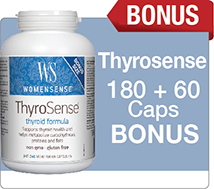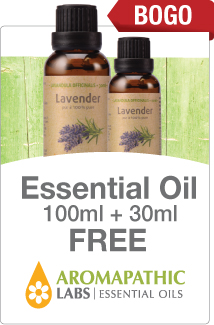Interstitial Cystitis
Updated Nov. 29th, 2017
Some patients report urinating more than 50 times a day, when symptoms are severe. Pain on intercourse (dyspareunia) may also be present. These symptoms will range, depending on the individual, from mild discomfort to severe, debilitating pain that can radiate to the lower abdomen/pelvis, low back and thighs. Menstruation can aggravate symptoms in the majority of women, as well. There are often periods of flare- up and remission. IC is more common in individuals with IBS, spastic colon, hysterectomy, rheumatoid arthritis, fibromyalgia, hay fever, asthma, and food or medication allergies.
Diagnosis difficulties
Interstitial cystitis is a poorly understood and difficult to diagnose pathology. Diagnostic tests for IC are mainly done to rule out other causes - a diagnosis of exclusion. For example, urinalysis results in individuals with interstitial cystitis are normal, ruling out urinary tract or bladder infections. Tests for endometriosis, as well as STD's or vaginitis are also commonly included in the work-up of these symptoms. A small percentage of individuals when tested will be positive for Hunner's ulcers, as well as reduced bladder capacity. If either of these findings are present, it is definitive for IC. It is important to understand that if you are negative for these findings, it does not rule out IC. A cystoscopy or intravesical potassium sensitivity test (to test for increased permeability in the bladder) may be recommended to confirm a diagnosis of IC. Most commonly, patients with IC are found to have small hemorrhages of the bladder mucosal wall, along with inflammation of the bladder.
Causes - Our best guess, anyway!
There are a number of potential causes of IC, although none have been definitively proven as of yet. Most treatment options are directed at repairing an abnormality in the bladder epithelial permeability as well as decreasing an overall inflammatory process. An increase in bladder permeability allows components of urine to penetrate and irritate the bladder. It has been suggested that this change in permeability is due to a deficiency in glycosaminoglycans (GAGS) in the bladder epithelium. Several studies have confirmed that patients with IC do have a deficiency in GAG. Another theory has to do with inflammation and again findings have shown an increased number of B cells, T cells, plasma cells, neutrophils, eosinophils, mast cells and interleukin-6, an inflammatory cytokine, in the bladder tissue of IC patients. The most likely explanation for IC is that it is a combination of these processes and more going on simultaneously. Given the trends with the incidence of IC, it is also well accepted that there is an autoimmune link.
What are my treatment options?
Treatment, once again, is difficult because it must be based on symptomology and less so on the cause of disease. That being said, the common symptoms can be alleviated with a variety of lifestyle and therapeutic interventions. About half the patients who suffer from IC have noticed that highly acidic foods, like citrus fruits, tomatoes and vinegars exacerbate symptoms. Many of these individuals find it helpful to avoid these foods. Avoidance of beverages, such as coffee, tea, and or carbonated/alcoholic drinks can also be helpful in reducing symptoms (A modified Elimination Diet). In terms of conventional medicine, dietary modifications are usually standard therapy, potentially combined with the very few medications approved for the treatment of IC, with guarded expectations. Surgical interventions are possible, but considered a last resort, as they are often associated with relapse, persistent pain and additional surgery.
Natural treatment alternatives
There are some natural products that have shown to both decrease symptomology and flare-up occurrence of IC, along with the dietary recommendations made above. In terms of repairing bladder epithelium permeability, colostrum has been shown to be effective, as well as being an effective immune support. Glucosamine sulfate or N-acetyl glucosamine (NAG) have also both been used to repair the integrity of the bladder epithelium and replace the deficient glycosaminoglycans. Serrapeptase proteolytic enzymes have been successfully used by IC sufferers to reduce inflammation and pain associated with inflammation. L-Arginine, commonly used for blood pressure, has also been studied for its ability to decrease inflammation and symptomology in IC patients, as has vitamin A. Do not use vitamin A in high doses if you are attempting to get pregnant. Quercetin may help to alleviate inflammation by inhibiting mast cell activity and the release of damaging inflammatory mediators. Other herbs to consider include Berberis, Zea Mays and Marshmallow Root.























I have used bovine colostrum and diet (less acid foods) to control the IC. It works!
I think i have IC no infection in urine tests ever found i have discovered that hay fever medication seems to ease symptoms considerably is this possible ? please advise many thanks
Hello Victoria,
Thank you for your question. The first thing to know is that IC is a chronic condition, so there really is no foolproof fix. That being said, following a healthy diet and taking supplements to help reduce inflammation have been shown to help the condition and and calm the symptoms. In fact, studies have shown that curcumin can help the inflammation that leads to interstitial cystitis and temper its symptoms. Finally, yes, you are correct that some people report that antihistamine medications can temper the symptoms of IC. If you'd like to learn more about curcumin, check out our article here:
https://www.nationalnutrition.ca/articles/supplements/curcumin/
Have a healthy day!